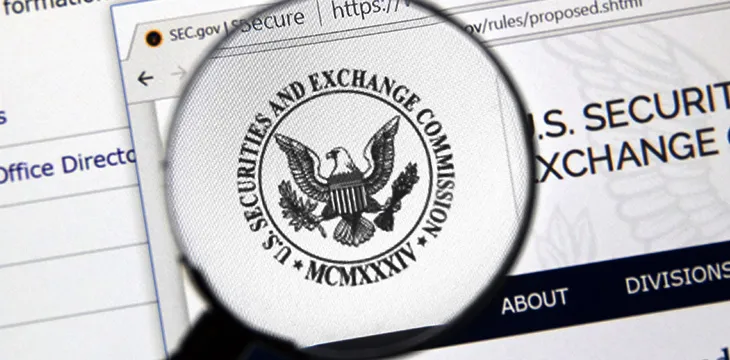|
Getting your Trinity Audio player ready...
|
When Crypto Asset Management (CAM) was established, it was to be the first regulated cryptocurrency asset fund in the United States, That was in 2017 and the company ultimately raised more than $3.6 million for the fund before the U.S. Securities and Exchange Commission (SEC) stepped in and shut it down for violating securities registration rules. Now, the company, rebranded to Digital Capital Management (DCM), is going after the law firm that offered its services and advice in preparation for that launch, looking to hold it accountable for providing inaccurate data.
CAM had sought legal guidance from the Faegre Baker Daniels law firm when it was preparing for its launch. It wanted to know how to properly file and register in accordance with the Investment Advisers Act and believed that the advice given by the law firm was legitimate. However, the cease-and-desist order and $200,000 fine from the SEC proved that it wasn’t.
According to the lawsuit, provided by Bloomberg Law, the law firm had reportedly told the company that crypto assets are not securities and that the business needed to be structured differently. It also suggested that the funds should be registered “under [SEC] Regulation D Rule 506(b) and not Rule 506(c).”
However, soon after the fund launched, the SEC reached out to CAM to inform it that an investigation had been initiated. When CAM turned to the law firm once again for guidance, the lawyers took control of the situation, but things continued to go downhill and they “provided inaccurate analysis and advice.”
The SEC stated at the time of the order against CAM, “Hedge funds seeking to ride the digital asset wave continue to proliferate. Investment advisers must be sure that the funds they offer adhere to the applicable registration obligations and must accurately represent their funds’ regulatory status to investors.”
Now as DCM, the company wants the law firm to be held accountable for legal malpractice and is requesting a jury trial. It is seeking an unspecified amount in compensation for compensatory damages, reputational damage, lost profits, consequential damages and all associated fees related to the court proceedings.
CAM, and its principal, Timothy Enneking, had agreed to the cease-and-desist order and the fine without admitting to or denying the SEC’s claims.

 07-02-2025
07-02-2025 





